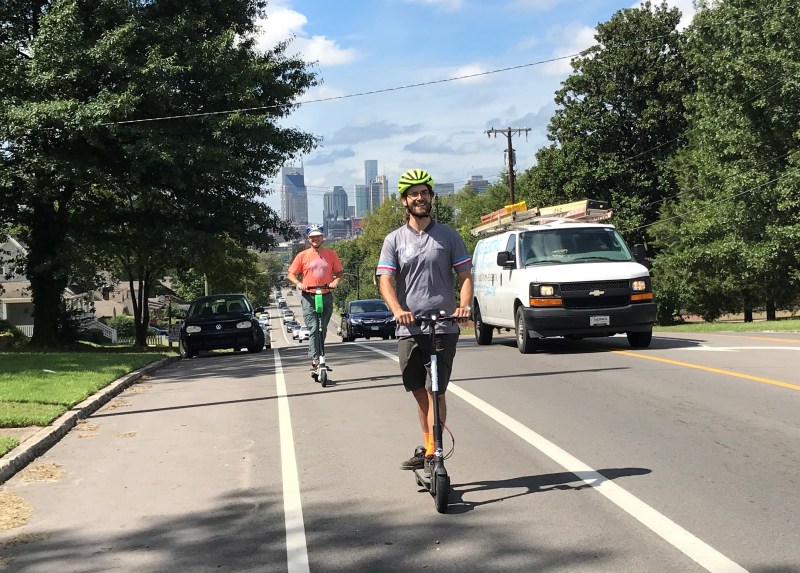Tech companies like Uber and Bird are disrupting transportation in cities with the promise of actually helping them become more sustainable and less over-reliant on cars. But will they?
A new organization, New Urban Mobility, which goes by the acronym NUMO, wants to help city leaders make sure.
Launching on Wednesday, the group aims to be "gap fillers," says Executive Chairwoman Robin Chase, providing policy support, or leading engagement to advance 10 "shared mobility principles" aimed at promoting a more sustainable and people-oriented urban transportation systems.
The organization will have seven employees in Washington D.C. We reached out to Chase, best known as the founder of Zipcar, to get the gist (interview lighted edited for length and clarity):
Streetsblog: What was the impetus for this organization?
Robin Chase: All these new urban mobility options … are causing a huge disruption in the sector. Everything is in flux. It’s causing cities and the people who live in them to have to rethink what the status quo looks like. We haven’t felt such disruption in 100 years. We have this unique moment to rethink what our priorities are.
Cars and parked cars and car taxation and car regulation … all of that is so built into the status quo that people can’t see it. They can’t envision what an alternative world would look like.
We as an urban mobility field, as an entire planet, need to get on the same page about where we are going. NUMO is an effort to convene those stakeholders that share that vision together to work at a much faster pace.
At the core it's about creating joyful, sustainable and just cities.
Streetsblog: What makes this organization different than the existing national transportation policy nonprofits, including the National Association of City Transportation Officials or Transportation for America?
Chase: Those organizations have produced some great blueprints or guidelines, for complete streets, or for micro-mobility. Some of that work we want to elevate. Those groups are mostly focused on policy push. But there’s an inadequate demand pull. There’s inadequate work with people who live in cities, to make them see where there’s a future that works better for them. How do we activate them more?
In many cities, there are two very loud voices: Car owners and would-be cyclists, and more specifically cycling advocates, which is a very small number. There are many, many more stakeholders and interests involved whose voices are not heard.
We are going to be more focused on convening and elevating of best practices. Where are there research gaps? Where are their policy gaps that we can bring people together and help fill? We are very focused on tech-driven disruptions, including on-demand delivery.
Streetsblog: Are you receiving any money from tech companies?
Chase: Not right now. We're intending to be an independent voice.
Streetsblog: Can you explain the shared mobility principles a little bit more?
Chase: One of them, for example, is "Focus on moving people not cars." Another is "Making efficient use of our streets, curbs, vehicles, lanes." "Choose more efficient means over inefficient means" and "Fair users fees across all modes."
Cities have a lot of taxation that doesn’t provide a level playing field. What are shared bike systems' business models? One of the reasons shared bikes have a hard time making money is we’re letting cars pollute for free. We have unequal fees for all modes. We have unequal distribution of space for all modes.
Another principle is "equitable access for all."
These principles are aspirational for every city in the world. None of us is doing a good job.
Which cities are ripe? We want to be the gap filler.
Where are there mayors that are champions? Were are there policy discussions? What can we do that will help it over the line?
More information is available at NUMO's website, which launched today.






